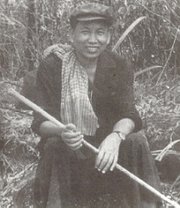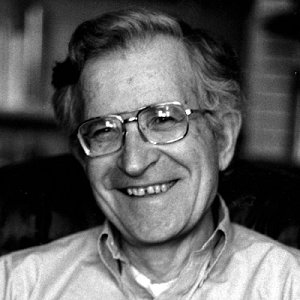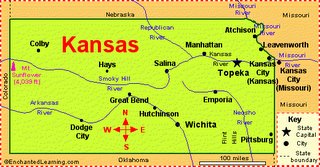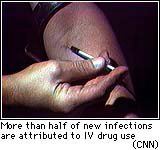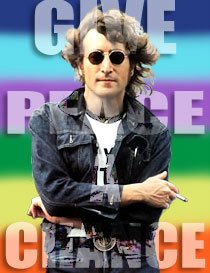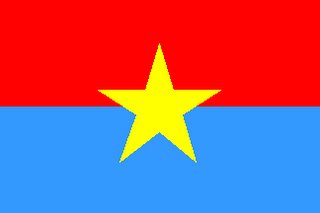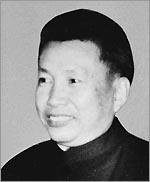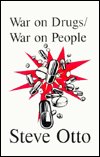
 Contemporary Marxism,
Contemporary Marxism,No. 12 – 13, Spring 1986, p. 64 - 67
By Steve Otto
The debate over Vietnam's occupation of Kampuchea has divided many people on the Left. The Vietnamese position, which many people in the U.S. and Canadian Left support, is that the present Kampuchean government is an independent nation. In a speech to the U.N. General Assembly on October 21, 1981, concerning a negotiated settlement to the Kampuchea problem, the Vietnamese claimed that there was no "Kampuchea problem" and hence there could be no "comprehensive settlement." With this statement the Vietnamese were trying to ignore the real situation in Kampuchea.
Since that time, the Vietnamese have made a few proposals of their own for a negotiated settlement. These include negotiations with the non-Khmer Rouge members of the Democratic Kampuchea Coalition, a dialogue with China, and a proposal to allow some Khmer Rouge members to enter the government, provided they come in as individuals and not as a group. They still refuse to negotiate with the Khmer Rouge. This indicates that the Vietnamese now realize that the "Kampuchea problem" is no longer a problem they can afford to ignore.
After the Vietnamese began their invasion and occupation, both they and the Soviets started their own propaganda campaign to discredit the Khmer Rouge. Since China was and still is the Khmer Rouge's only real ally, and since China has lost most of its influence among Third World, communist, and other Left groups, it is difficult for the average person to get unbiased accounts presenting the other side of the issue.
The present government of Kampuchea, headed by Heng Samrin, is entirely dependent on Vietnam for survival. Not only does Vietnam have 180,000 troops in Kampuchea, it also has Vietnamese officials that playa principal administrative role, overseeing most of the work of the Phnom Penh government. I It is believed that the present government would collapse to the anti-Vietnamese almost immediately if the Vietnamese pulled out. This contradicts the idea of an independent nation.
Recent reports indicate that the Democratic Kampuchea Coalition has grown in size and is beginning to gain some support inside Kampuchea.2 At the same time the People's Republic of Kampuchea has been unable to build an effective army to counter the rebels on its own.
Some of the statements made by Hoang Tung in his interview with Kathleen Gough (in this issue), contradict his statement that Kampuchea is not a satellite of Vietnam. In his statement that Vietnam's zone of security is very modest compared to the military alliances of the U.S. and Canada, he is admitting that Vietnam has a sphere of influence similar to but much smaller than that of the U.S. or Canada. Tung is trying to down-play the imperialist nature of Vietnam's Kampuchea policy by pointing fingers elsewhere. But a little imperialism is still imperialism.
Tung criticized Romania and North Korea for their support of the Pol Pot regime. These countries are Marxist-Leninist countries that have taken pride in their status as unaligned, independent socialist states. This concept is very popular with many Third World people who do not want their country dominated by the Soviets any more than they want domination by the U.S. or Western imperialism. North Korea's stand on Kampuchea has not prevented it from having good relations and support from most of the other progressive Third World countries, including Nicaragua, Mozambique, and Zimbabwe. Zimbabwe also voted in favor of the Democratic Kampuchea Coalition in the U.N. General Assembly.
Tung said, "At least 9 million people were killed by Stalin, one way or another." Yet he is willing to give Stalin credit for bringing the U.S.S.R. out of poverty, and for his fight against Hitler. But he fails to credit the Khmer Rouge with their remarkable agriculture program, which increased rice production by growing rice through the dry seasons. They did this by building an extensive irrigation system and implementing a program of water conservation.3 Tung uses the figure of 3 million people killed by Pol Pot; less biased accounts of the killings are closer to one and a half million. Of these, one third were believed to be executions and the rest indirect deaths resulting from overwork or inadequate food rations.4
This is not to say that killing a million people, as opposed to 3 million, is justified. The point is that the issue needs to be dealt with objectively. When the Khmer Rouge came to power, the Western media immediately began exploiting their problems and distorting the facts. While reports of the killings had a base in truth, other stories didn't. It was reported by the Western media that vehicles were abandoned in junk-piles because the Khmer Rouge condemned them as relics of Western imperialism. Actually, the vehicles were disassembled so the parts could be used for irrigation machinery.5
Tung's comment that both Pol Pot and Mao believed "it was necessary to kill a percentage of people" is a gross oversimplification. China under Mao used executions only for the most extreme cases of antisocial behavior, mostly relating to loss of life of landlords who committed extremely brutal acts against peasants.6
Mao himself has been quoted as saying:
"A head isn't a leek. It doesn't grow again once it's been cut. If you cut if off wrongfully, then even if you want to correct your error, there's no way of doing it."7
While socialism takes away the basic impetus toward colonialism and imperialism which is inherent in modern capitalist society, it does not mean an automatic end to all imperialist tendencies. The Soviets' invasion of Czechoslovakia and Hungary, and the present occupation of Afghanistan, are proof of this. These policies have not been popular with the people of the nations involved. These actions have also been condemned by most of the Western Left. The Soviets are learning the same lesson the U.S. learned in Vietnam: the people of any given country will actively oppose the presence of foreign troops on their soil. The Vietnamese are experiencing a similar situation in Kampuchea.
It could be argued that the government of Pol Pot was brutal therefore overthrowing it was a humanitarian act. Since the guerrillas have gained support and have grown in strength, and since the present government is not able to produce an effective army, it seems that not all Kampucheans agree that Vietnamese occupation is preferable to the Khmer Rouge, which makes up almost three fourths of the Democratic Kampuchea Coalition.
This argument is similar to that of the British in Northern Ireland. The British claim that there would be a bloody civil war and most of the Catholics would be slaughtered if they pulled out. However, it is the Catholics who have rejected this claim, and, in fact, support for the IRA is growing.
If Vietnam is justified in saving the Kampucheans from their mistakes in Kampuchea, can the U.S. use the same excuse to overthrow the brutal and repressive Khomeini regime? Would the Iranian people appreciate a move like this?
As the U.S. anti-imperialist movement continues to focus on colonialist and neocolonialist ties in Latin America, Asia, the Middle East, and elsewhere, we should remain consistent with the theme of self-determination for all people. Each country has the right to develop its own brand of socialism at its own pace. Naturally there will be some mistakes. There will be countries whose revolutions will bring regressive rather than progressive policies. The U.S. Left has a right, if not an obligation, to speak out against regimes that rely on brutality. But that does not mean an endorsement of invasion and occupation, even if that invasion is by another socialist government.
Democratic Kampuchea was an independent, neutral, and nonaligned country, which had come to power through a legitimate revolution against U.S. imperialism and its lackey, Lon Nol.8 If there is to be a change, it should come from the Kampucheans.
Those in the U.S. Left who continue to support the Vietnamese puppet government could experience embarrassment if the so-called independent government becomes more isolated and dependent on foreign support. We can support U.N. resolutions which call for a comprehensive political settlement involving negotiations and representation of all Kampuchean parties and a total withdrawal of all foreign troops.
NOTES:
I.
The Guardian (Jan. 5, 1983).
2.
U.S. News and World Report (Aug. 8, 1983).
3. George C. Hildebrand and Gareth Porter,
Cambodia: Starvation and Revolution, (Monthly Review Press, 1976), p. 74.
4. Ben Kiernan,
The Guardian (Dee. 29, 1982).
5. Hildebrand and Porter, op. cit., p. 15.
6. John and Elsie Collier,
China's Socialist Revolution, (Monthly Review Press,
1973), p. 113.
7.
Time (Sept. 20, 1976).
8. Group of Kampuchean Residents in America,
Black Paper, Facts and Evidences of the Acts of Aggression and Annexation of Vietnam Against Kampuchea, (Department of Press and Information of the Ministry of Foreign Affairs of Democratic Kampuchea, Sept. 1978).




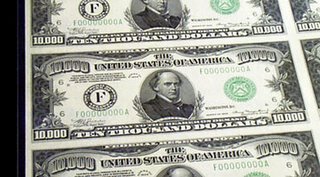 Today it’s just a business venture.
Today it’s just a business venture.
